19







shop online at www.missourivalleyshopper.com
National Ag Week
March 15, 2016 • Page 19
March 13-19, 2016
Senate Passes Higher Fee On Agricultural Fertilizers
PIERRE – South Dakota farmers would pay
higher inspection fees
on agricultural fertilizers under a conservation measure approved
Thursday by the state
Senate.
The fee increases
would raise an estimated $1 million. The
proceeds would be used
mainly for research into
proper application of
fertilizers.
The Senate vote was
28-6.
“Water quality is
imperative for us. It’s
life. It’s the future,”
Sen. Larry Tidemann,
R-Brookings, said.
Many agricultural producers have voluntarily installed
conservation measures but
there is a lack of ongoing
study of fertilizer use, he
said.
Other states spend portions of their fertilizer taxes
for research, according to
Tidemann.
The fees charged to farmers currently are five cents
per ton for manipulated manure and 15 cents per ton for
commercial fertilizers. Those
would increase to 55 cents
and 65 cents, respectively.
The secretary of agri-
culture could raise the fees
as high as 75 cents per ton,
Tidemann said.
Sen. Jim Peterson, DRevillo, stood up as one
of the farmers who would
be paying the bill. “I don’t
think there were any farmers
who testified,” Peterson
observed, before urging the
bill’s approval.
He explained to other
senators how highly technical farming has become with
computers in the tractors
and computers used to test
fields.
“Farming has changed a
lot, but I think it’s very, very
important,” Peterson said.
He estimated it would cost
his farm $350 to $450 more
per year.
The data is important in
case there are federal mandates later, Peterson said.
Sen. Jason Frerichs, DWilmot, also spoke in favor
as a farmer.
“We don’t want to overapply. We want that fertilizer
to stay on the ground where
it’s placed,” Frerichs said.
“This is good stuff,” he
added.
The legislation, HB 1094,
now must return to the
House of Representatives for
a decision whether to agree
with the amendments made
by the Senate Agriculture
and Natural Resources Committee.
One of the Senate changes was adding a requirement that 10 percent of the
revenue would be used for
water quality grants starting
in 2020.
The bill originally passed
in the House 67-2. Its prime
sponsor is Rep. Lee Qualm,
R-Platte.
SDSU Entomologist Discovers New Insect
Species On Prairie Cordgrass
BROOKINGS - A newly
discovered insect species
in prairie cordgrass may
explain why increasing seed
production has been so
difficult, according to South
Dakota State University entomologist Paul J. Johnson,
a professor in the plant science department.
He and graduate student
J. Manuel Perilla López
found a new species of gall
midge in prairie cordgrass
at four locations in eastern
South Dakota, including the
Oak Lake Field Station. The
research was supported
primarily by the U.S. Department of Agriculture
through the North Central
Regional Sun Grant Center
which seeks to develop
native grasses as a source
of biobased transportation
fuels.
The prairie cordgrass gall
midge has a different relationship with its host plant
than other species of gall
midge, which form a pocket
called a gall within plant
tissues, Johnson explained.
“This species feeds on the
seeds but doesn’t modify
the plant itself. That’s a new
discovery in itself.”
The adult gall midge,
which is about half the size
of a fruit fly, lays its eggs
in the plant when it begins
to flower in mid to late
July, according to Johnson.
The larvae feed on the
developing seed within the
plant. “Depending on when
the eggs hatch, the larvae
will even feed on the unfertilized ovule.”
However, when the adult
lays its eggs too late, the
larvae don’t develop to adult
stage because the developing seed has become too
hard, Johnson explained.
“They don’t have mandibles,
so must suck the juice of
the plant.”
Sun Grant director Vance
Owens said this research
is important because “seed
production has always been
a significant issue with
prairie cordgrass.”
Commercial companies
have had problems with prairie cordgrass, in particular,
Johnson noted. “Though the
demand is high, it’s costly to
grow and produces very few
seeds. Now, we have an idea
of what’s causing that loss.”
Johnson and López also
discovered a possible solution to the problem—a parasitic wasp that feeds on the
gall midge larvae but doesn’t
damage the grass. “They
have the potential to be used
as biological controllers,”
Johnson said.
Next, the researchers
need to determine what can
be done to enhance these
parasitic wasp populations
and what population levels
will be needed to prevent
seed damage. Avoiding
the use of pesticides will
reduce input costs, which
is important for a crop that
has a lower profit margin, he
pointed out.
In addition, researchers
must address the issue of
monoculture versus mixed
grass communities, according to Johnson. “Can we put
big blue stem in one area,
prairie cordgrass in one and
switchgrass in another to
produce, on average, a good
amount of biomass—and
how does that affect the
insect communities?”
He expects that complex,
mixed communities will be
more stable ecologically and
have fewer pest problems.
That may then help increase
production of native grasses
for use in biofuel production.
FOR ALL YOUR AUTOMOTIVE, TRUCK
AND TRACTOR PARTS COME TO:
Young Producers
Experience National
Leadership Conference
HURON – Six young ag producers from South Dakota had
the opportunity to attend the Young Farmers & Ranchers national conference held Feb. 12-15 in Kansas City, Missouri. This
American Farm Bureau Federation event focused on leadership
and personal development opportunities for young farmers
and ranchers ages 18 to 35.
Chad and Kathy Hanrahan of Milesville, Nick and Bekah
Ihnen of Tulare, and Kelsi LaMont and Travis Grave of Willow
Lake attended from South Dakota.
Highlights of the conference included hearing from Miss
America Betty Cantrell, a farm girl from Georgia who is using
her platform to promote healthy food choices and teach kids
where their food comes from, and Jason Brown, former NFL
football player who left the league to start a farm in his native
North Carolina.
“Nick and I greatly enjoyed our time at the national YF&R
conference,” commented Bekah Ihnen. “I think our favorite
part of the conference was the tours, being able to take a look
at different crops and farm operations. We really appreciate
being given this opportunity through Farm Bureau.”
“It was great to meet some other state YF&R chairs and
lots of new people. We got to bring home information that we
can use in our own operations, our County Farm Bureaus and
our state YF&R committee,” added Chad Hanrahan. Chad and
Kathy serve as co-chairs of the SDFB Young Farmers & Ranchers Committee this year.
In addition to the keynote speakers, breakout sessions
were offered on a wide variety of useful topics, including: farm
succession planning, working across generations, tackling
tough agricultural topics with consumers, record keeping for
precision-ag data, using social media to connect with the offfarm public, and more.
Kelsi LaMont added, “By far the greatest part of the conference was the chance to network with other ranchers our age.
It’s nice to know we’re not alone in facing challenges and to
make lifelong friends who share the same values and interests.
The travel experience and educational information were also
much appreciated.”
SDFB President Scott VanderWal, who was elected last
month as Vice President of the American Farm Bureau Federation, was also a featured speaker at the conference, alongside
new AFBF President Zippy Duvall of Georgia.
Graduate student J. Manuel Perilla Lopez examines
prairie cordgrass at the Felt farm north of the SDSU
campus. He documented a new species of gall midge
that feeds on the seeds of this native grass. He completed his master’s degree in December 2015.
“Don’t Gamble” - Insure With
M.T. & R.C. SMITH
INSURANCE
Serving the Yankton Area Since 1949
Home, Auto, Business, Life, Bonds
servicing your GROWING needs
“Get the good stuff!”
209 W. 4th St. • Downtown Yankton, SD
Bearings – Batteries – Filters
Automotive • Truck • Agricultural • Marine
605-665-3611
smithins@iw.net
COX AUTO SUPPLY
Locations in SD: Winner, Pierre, Philip
Locations in NE: Bloomfield, Hartington, Wayne
America’s Farmers,
ranchers and growers
are some of our nation’s
greatest assets. Not only
do we rely on agriculture
for our food, feed, fiber,
and fuel, our agriculture
producers preserve our
environment, and help
drive our national
economy.
1007 Broadway • Yankton, SD • 605-665-4494
JOIN US IN SAYING,
“Thank You.”



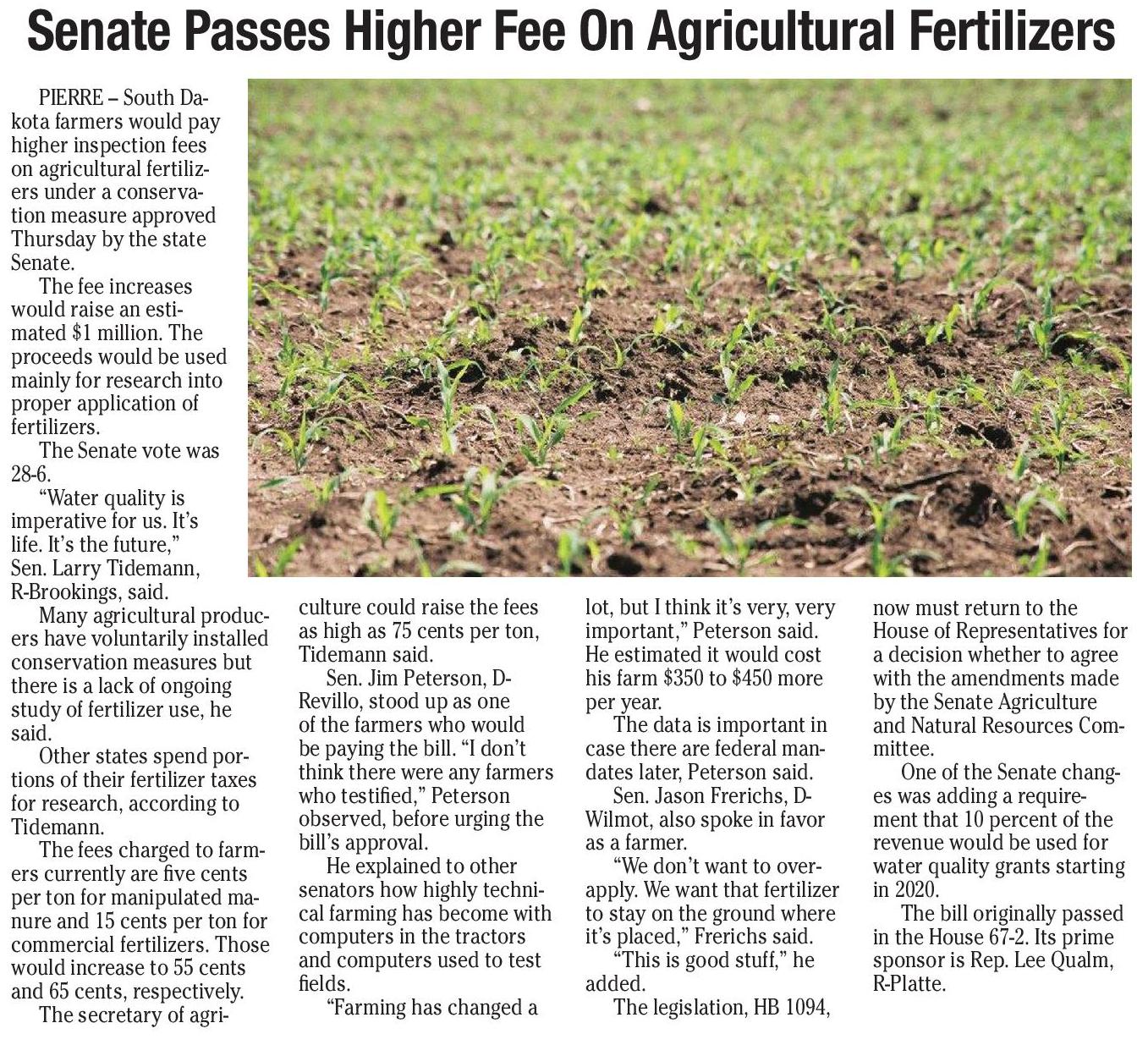
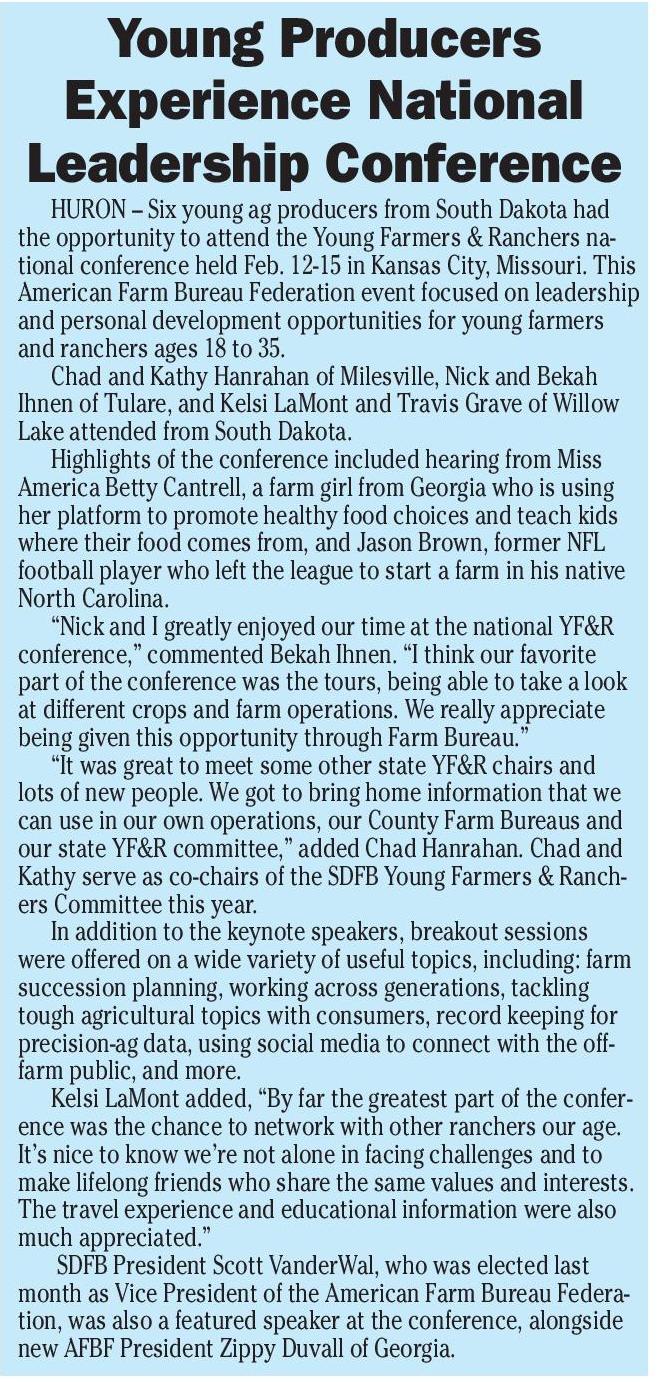
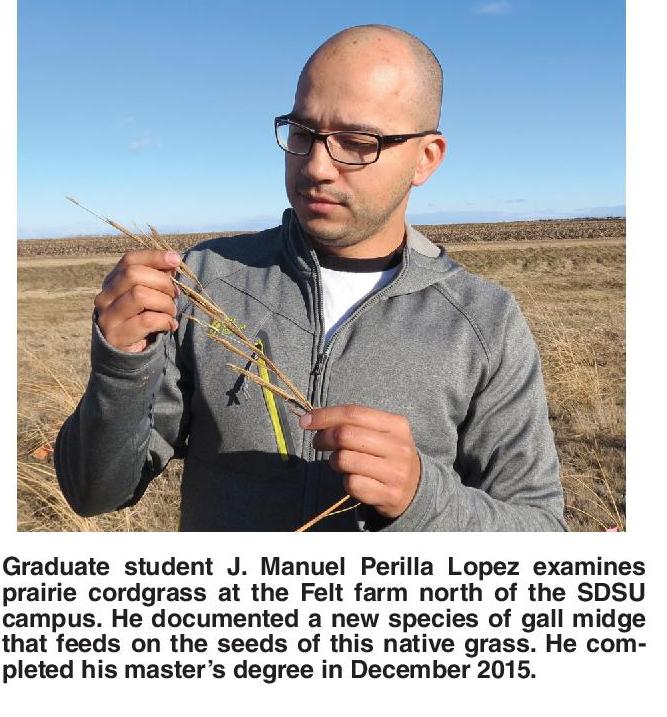
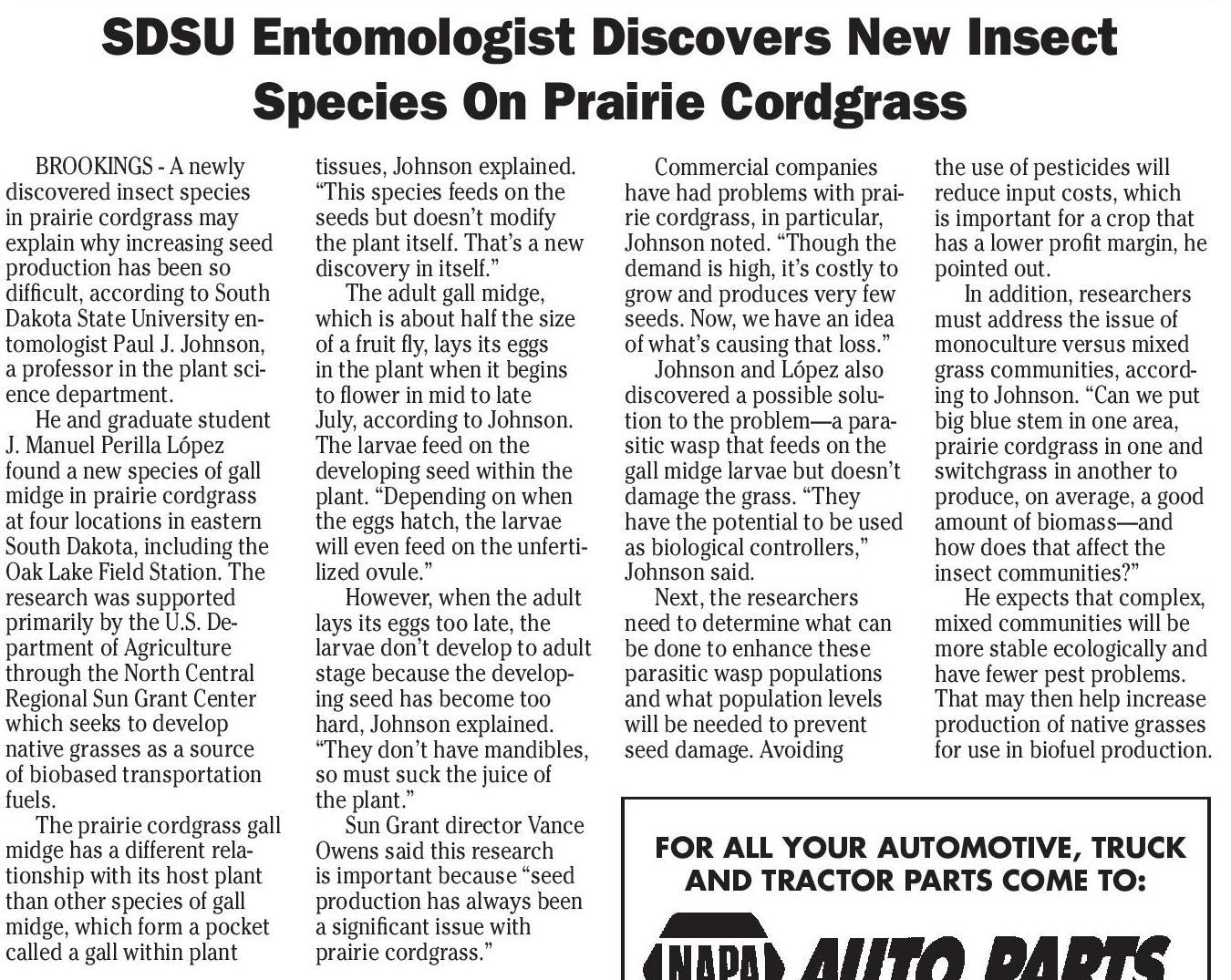





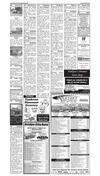



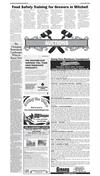



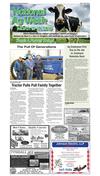
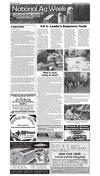

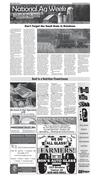
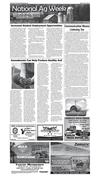
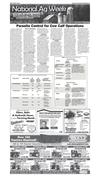
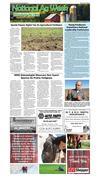





 Previous Page
Previous Page





